What are the symptoms of potassium deficiency?
Manifestations of potassium deficiency
Many elements have a great impact on human health, they affect the body's metabolism and are essential for normal development and life. Potassium is one of the most important minerals that we need, and is essential for the human body. If you are deficient in potassium, you will notice the following:
- Muscles Affects the normal contraction function of muscles, neuromuscular relaxation, limb weakness, and if the respiratory muscles are involved, can lead to respiratory difficulties and suffocation;
- Heart The rhythmic contraction of cardiac function requires a dynamic balance of potassium ions inside and outside the cardiomyocytes in the myocardium to maintain excitation, autoregulation, and conductivity, and potassium deficiency can cause arrhythmias (which will show up in a typical electrocardiogram);
- Metabolic disorders of energy substances in the body Daily activities of the human body need to consume energy, the human body under pathological conditions due to the lack of potassium ions will cause energy metabolism disorders, affecting the normal functioning of the relevant organs to play the hot summer sweat evaporation, potassium ions are also taken away accordingly, many people will feel lethargy and lack of potassium is also related to a certain extent, because of its impact on the normal metabolism of brain cells.
Others have anorexia, nausea, vomiting and abdominal distension and other intestinal paralysis manifestations as well as go to the hospital for blood tests will suggest abnormal kidney function and blood potassium is lower than the normal value, so usually the diet should be balanced, especially taking diuretics suffering from hypertension in the elderly, need to be more caring and concerned about, pay attention to their dietary habits and words and deeds.
Feel free to leave a comment to discuss and follow. Like it if you like it so more people can see it, thanks.
When it comes to potassium deficiency, it is a condition that we surgeons are very concerned about, because potassium deficiency definitely accounts for a very large percentage of sudden deaths after surgery! Moreover, potassium deficiency occurs in daily life for a variety of reasons, resulting in many accidents.
Here, Dr. Wong will throw in a few words to popularize "The significance of potassium to the human body","When does potassium deficiency occur","How does potassium deficiency manifest itself?"and"How to replenish potassium", I hope this article can provide some help in health awareness.

(i) Significance of potassium to the human body
Speaking of potassium as an element, there is a science fiction movie that has to be mentioned, that is, the story of Frankenstein who collected all kinds of limbs and pieced them together to form a body, and gave it life through the electric current of thunder and lightning, and I think a lot of people still have some impression of this. Through this story, I don't know if you have ever wondered why scientists believe that electric current can create life?
There is another phenomenon that we can see in movies and TV shows. When a patient is dying and his heart stops beating, why does the doctor take two large iron plates and administer electric shocks?
Yes, you have guessed it right, our human body is actually powered by electric current for continuous existence, just like all electrical devices! The nervous system distributed throughout the body can be interpreted as electrical wires, and the oxygen and nutrients delivered by blood vessels are used to generate electricity. Of course, the "electricity" that Dr. Huang refers to here belongs to the category of bioelectricity, which is very weak and different from the electric current that we come into contact with in our lives.

Having said that, you may think it's a bit of a stretch, what does any of this have to do with potassium?
In fact, potassium is the main substance involved in the formation of bioelectricity!
Physics at the secondary school level teaches us that the production of an electric current is essentially the flow of electrons (positive charges) in one direction. Within each cell of the human body, it is the constant cyclic movement of sodium (positive charge) and potassium (positive charge) ions that generates the weak bioelectricity that drives all body functions. The specific mechanism is: the cell through the consumption of energy, three sodium ions pumped out of the cell, and two potassium ions pumped into the cell, the equivalent of a positive charge from the cell to the outside of the cell, the formation of a potential difference between inside and outside of the cell, resulting in bioelectricity, which is known to medical students as the "sodium-potassium pump" and the "cell resting potential". This is what medical students know as the "sodium-potassium pump" and the "cellular resting potential", both of which are the cornerstones of life.
We can imagine, when the body lacks potassium, it is equivalent to the lack of coal in the thermal power plant, can it still generate electricity? The human body is not like a laptop computer, there is no battery, if the power is cut off, won't the human life also end?
This is the reason why potassium deficiency can be so acutely lethal; the heart is so dependent on this bioelectricity that acute potassium deficiency deprives the heart of this bioelectric drive, leading to cardiac arrest and sudden death. Chronic potassium deficiency, of course, allows the patient to slowly adapt and present a wider variety of symptoms until the limit of what can be tolerated in life is exceeded.

(ii) When potassium deficiency occurs
With all of this talk about the importance of potassium, let's move on to what happens when there is a potassium deficiency.
First of all, with a normal diet and normal body functions, the level of potassium ions in human blood is relatively stable and does not fluctuate greatly. Food delivers a constant flow of potassium to the body, and excess potassium is excreted in the feces and urine, keeping the whole process in a state of balance.
When does potassium deficiency occur? There must be only two things; less potassium supplied by food or more potassium lost by excretion. In the former case, theProlonged fasting with little foodThis leads to a reduction in the amount of food consumed on a daily basis, and when you can't make ends meet, your body is naturally deficient in potassium, which needs to be taken care of for women who are trying to lose weight by eating less. The latter, theSevere diarrhea or prolonged use of diureticsIn this case, it will cause too much potassium to be excreted from the body and result in low potassium, which needs to be taken care of for the long-term need for oral diuretic drugs (e.g. diuretic antihypertensive drugs).

There is another condition where acute potassium deficiency can occur, and that is theFrequent vomitingThe gastric juice contains a lot of potassium, and vomiting constantly is like pulling potassium out of the body, which can easily lead to acute potassium deficiency and cause accidents.
At the same time, we urologists also come into contact with a class of potassium-deficient patients from time to time, namelyAdrenal gland function abnormalitiesThe majority of these patients have adenomas of the adrenal glands. Most of these patients have adenomas of the adrenal glands, some of which overproduce a hormone called aldosterone, which causes potassium to be excreted in excess in the urine, resulting in a severe potassium deficiency. Potassium deficiency in this case is often chronic and may not be felt by the patient, but when it reaches a critical level of potassium, a fatal accident usually occurs.

I do not know if you have noticed, for patients after surgery, before eating normally, the doctor will often prescribe a lot of large bags of "saline", to hang for several hours a day. In fact, the basic ingredients in this are two, energy + potassium. Potassium is the source of life to a large extent, many postoperative patients sudden death of medical malpractice, are involved in the irrational supplementation of potassium.
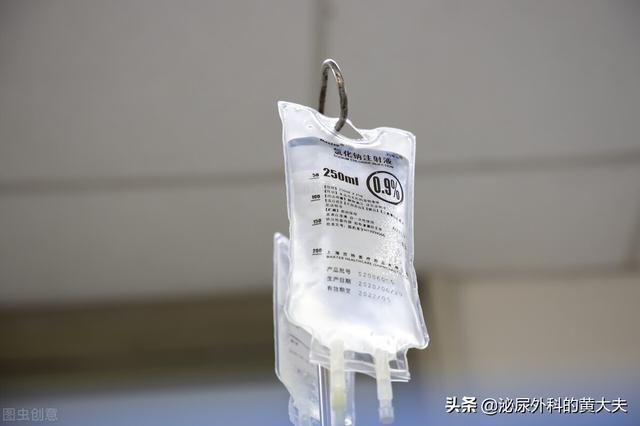
(iii) What are the signs of potassium deficiency?
When it comes to the manifestations of potassium deficiency, it's time to talk about it in the context of the bioelectricity that potassium represents, and try to make it as simple and common as possible.
The human body is most dependent on bioelectric drive is distributed throughout the body of the muscles, as well as nerves, the muscles need electrical stimulation to produce contraction and diastole, and the nerves need electric current to conduct a variety of commands.
When the body is deficient in potassium, resulting in a lack of "power supply", the muscles in various parts of the body will behave differently:
- The muscle strength of the limbs then decreases, showing weakness, flaccid paralysis, and numbness;
- When the strength of the respiratory muscles decreases, it is difficult to complete the breathing maneuver, and dyspnea will be presented;
- Muscle contractions and peristalsis in the intestines are weakened, making it difficult to complete the transportation of food down the intestinal tube, leading to bloating, nausea and vomiting;
- The muscle strength of the heart muscle also decreases, leading to chest tightness and palpitations.

At the same time, "under-supply" also has a direct effect on the nervous system:
- Central nervous system downtime, as evidenced by apathy, dull gaze, lethargy and confusion;
- The function of the peripheral nervous system decreases dramatically, causing the muscles to have difficulty getting commands from the brain and presenting weakness in the limbs and so on.

While most of the above are signs of chronic potassium deficiency, acute potassium deficiency is much more direct, like an electrical appliance pulling the switch, and can manifest itself directly in coma and cardiac arrest!
(iv) How to supplement potassium
First of all, potassium is not a good thing, not the more the better, the human body intake of potassium more, can also produce fatal harm! For example, uremia patients, is because there is no urine and lead to potassium can not be excreted, the body potassium accumulation and lead to life-threatening.
Whether or not you need to take potassium supplements, you need to follow your doctor's advice and not just supplement yourself based on your feelings!
For patients with acute potassium deficiency, it is necessary to deliver potassium directly into the body by means of intravenous rehydration. This is the most direct and fastest way, and is the most common method of clinical resuscitation. During hospitalization, if the doctor considers potassium deficiency, the patient will be instructed to take oral potassium chloride injections or slow-release tablets, which can also be used to replenish potassium quickly. These conditions are considered to be well understood and are not common in daily life.
If you are mildly deficient in potassium when you check yourself, and you occasionally experience the discomfort symptoms mentioned above, Dr. Huang has some suggestions on how to supplement potassium through food. Bananas are the richest in potassium, and nori, spinach and tomatoes are also good choices. Another favorite choice is orange juice, a natural fruit juice rich in potassium.

Generally speaking, the potassium content of food is still relatively balanced, and potassium supplementation through food is the safest way to get potassium, which is usually not high, unless there is an abnormality of renal function that causes the urine to be unable to excrete it.
concluding remarks
Unconsciously, Dr. Wong spilled out a lot more, and I hope it will be helpful to our readers.
As a doctor and a scientific researcher, we have a deeper understanding of medical physiology, and we also understand that textbook-style explanations often make readers afraid, and filler-style explanations also make readers half-understand and have no sense of view. Here, I hope to be able to start from their own understanding of the theory that the people understand, only so that the people understand, it is considered to be for the benefit of the public. To say goodbye to "whoever said" and become "I think I remember", knowledge is theirs only when they understand it!
Finally, as a side note, potassium deficiency symptoms can be mild, senseless, or rapidly fatal, so if you want to get to the bottom of it, read this article.

If anyone is confused about anything, feel free to leave a comment below.
I am Dr. Huang, adhere to the use of plain language to tell their own clinical understanding, if you agree with my point of view, please help to point a concern or click a like it, if you or your family and friends, need to know about the relevant knowledge, please forward this article to the people who need it, thank you!
Doctors remind: when your body shows these symptoms, it means you are suffering from potassium deficiency, be alert! Especially the last symptom is unexpected!
Hi everyone, I'm Nozomu Panther and I'm happy to answer your questions!
The human body needs to be supplemented with many minerals, and potassium is an important member of this group, responsible for potassium maintaining the body's acid-base balance, participating in energy metabolism, and maintaining the normal function of nerves and muscles.
Clinically, the normal value of potassium in human blood is3.5 to 5.5mmol/L, a blood potassium concentration of less than 3.5 mmol/L is low potassium, i.e."Hypokalemia.", is considered a potassium deficiency. It is usually caused by malnutrition, low dietary intake, consumption by malignant tumors, profuse vomiting, unrelenting diarrhea, and febrile etiology.
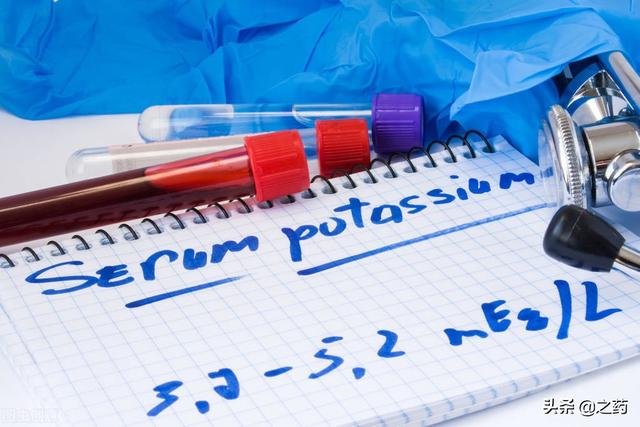
What are the symptoms of potassium deficiency?
1. "First" symptoms - fatigue, muscle weakness
Spring sleepiness, autumn fatigue, summer snooze, a to go to work without spirit, do not think that just did not sleep well, it is likely that the body lack of potassium performance.
This is actually quite understandable: if a person is chronically deficient in potassium, the body's self-defense kicks in and it tries to retain the potassium inside the cells, which causes the brain to constantly send out commands to stop muscle movement, at which point the brain takes more energy to function, and when there is not enough energy, theDrowsiness and lack of mental clarityand other states of fatigue.

On the other hand, when the body gradually stops releasing potassium, the muscles and nerve functions of the limbs cannot be supported, and there is a gradual generalizedmuscle weakness, can't lift or even support weight.
And when the blood potassium concentrationLess than 2.5 mmol/LIt's very likely that theLimb flaccidity, decreased or absent tendon reflexesEven the appearance ofParalysis of the diaphragm and respiratory muscleslead toDifficulty breathing, difficulty swallowingThe serious ones will beasphyxiation。
2. "Preventable" symptoms - cardiovascular-related diseases
Potassium is excreted during muscle activity, and the myocardium is no exception. From birth to death, our cardiovascular system is constantly contracting and relaxing. If potassium is in short supply, the muscles will strongly resist releasing potassium, resulting in unmet cardiovascular needs and weakness of cardiac or vascular smooth muscle movement, which in turn leads toPalpitations, arrhythmias及conductive blockageSymptoms such as.
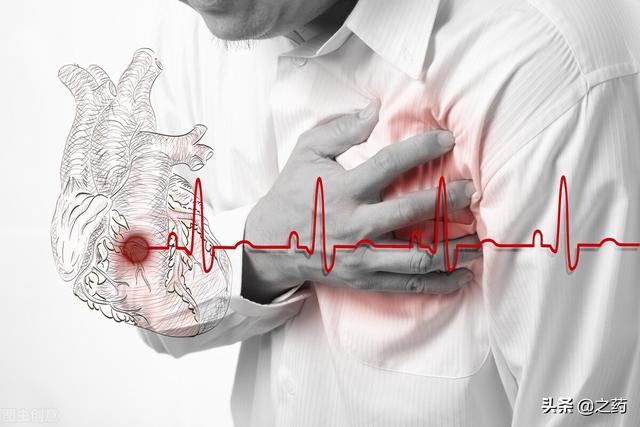
On the other hand, if the body is deficient in potassium, the blood vessels in the钠element will then increase, which will cause an increase in blood pressure, thehigh blood pressureIn addition, chronic potassium deficiency accelerates the accumulation of cholesterol and other "waste products" in the blood vessels. In addition, chronic potassium deficiency accelerates the buildup of cholesterol and other "waste products" in the blood vessels, which can causecoronary embolismand other diseases.
3. "Unexpected" symptoms -- diseases related to the nervous, digestive and endocrine systems
Since potassium maintains the normal functioning of the nervous system, when the body is deficient in potassium, the nervous system reacts abnormally with aDullness of vision, confusion, tinnitusSymptoms such as.
When the human body is deficient in potassium, it can cause gastrointestinal peristalsis to slow down and digestive function to weaken, with mildBloating, abdominal pain, constipationand other conditions, which in severe cases may causeparalytic bowel obstructionIn addition, electrolyte imbalance occurs when the body is deficient in potassium. In addition, electrolyte imbalance occurs when the body is deficient in potassium, at which point the patient often develops aNausea, vomitingSymptoms such as.

And finally, the "most unexpected" symptom you'll ever see--cramps. Most people think that this is related to a calcium deficiency, but in fact a potassium deficiency can also cause this symptom.
How do I get potassium?
In clinical medicine, the principles of treatment for hyperkalemia are"See urine for potassium supplementation."In order to restore the body's functions to normal, potassium ions are supplemented depending on the amount of urine output. At present, the clinic often adopts oral10% potassium chloride solutionPotassium supplementation.
But for most people in theLow potassium isn't that bad.case, the safest and most effective way is to eat morePotassium-rich foodsSome fruits and vegetables contain potassium in still higher concentrations, such as bananas, apples, peaches, grapes, pears, watermelon, spinach, yams, hairy peas, amaranth, and scallions.
Here, Panther has included one for youHigh Potassium Food ListThis table is from the Chinese Dietary Guidelines 2010 and is recommended to be kept.
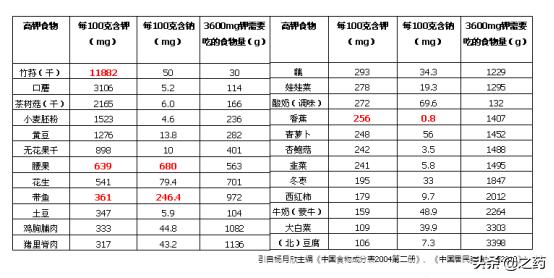
Finally, Panther suggests: when these obvious low potassium symptoms mentioned above appear, it is still necessary to go to the hospital for relevant (electrolyte) tests to further clarify the cause of the disease, so that effective removal of the cause of the disease treatment can be carried out.
Thanks for reading and I hope this article was helpful. I'm ZiMedicinePanther, a friend who cares more about your health.

References for this article:
[1] Li Changping. Interpretation of the Dietary Guidelines for Chinese Residents (2016 Edition)[J]. Health Care Medicine,2016(10):28-30.
[2] Vegetarian Dust. Are you deficient in these nutrients? [J]. Health and Nutrition,2016(Z2):62-63.
[3] He Zong. What to eat to replenish potassium fast six kinds of food on the list[J]. Nutrition and health care guide,2018(2):96-96.
[4] Tao M,Zhang WF.Chinese and western medicine nursing care of a patient with severe hyperkalemia in a primary hospital[J]. Contemporary Nurses (Lower Decade),2020(8):159-161.
As many of us know.low calciumIt may cause a lot of effects on our body, so do you know if our bodypotassium deficiencyIt can also lead to a lot of problems, yet it is not taken seriously by many people. Today, Dr. Hsieh will have a good chat with you about this low potassium problem!
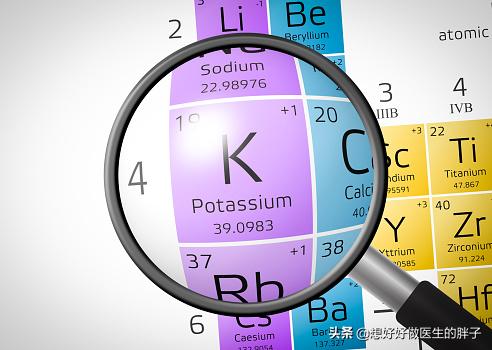
Potassium, important!
Ninety-eight percent of the potassium in our bodies is found in the interior of the cells, while the rest is found in the extracellular fluid, including the blood, and this concentration gradient is determined by a specialized structure called the钠钾泵to maintain!
It's a very complexpathologyThe problem, which is difficult to explain, can be understood simply as having such a structure to maintain the normal sodium and potassium ions inside and outside of our cellsconcentration difference。
this oneThe proper functioning of the sodium-potassium pump is very important for the functioning of our nerves, muscles, if there are abnormal changes in intracellular and extracellular sodium ion as well as potassium ion concentrations, there is the potential for severeNerves, musclesThe function of the
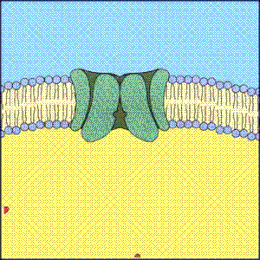
Severe hypokalemia, for example, can lead to patients witharrhythmia, which has a huge impact on the functioning of the heart.
Low potassium, what are the symptoms?
Potassium has a very important role in maintaining our muscle and nerve function, so when there is a drop in blood potassium, it naturally affects theMuscle and Nerve, with associated symptoms.
When our blood potassium levels are lowered, we experience a decrease in muscle contraction, and a lack of potassium affects our body's absorption of nutrients, which many patients exhibitFatigue, weaknesssymptoms, which is the first symptom in many patients with hyperkalemia.

Potassium deficiency causes our muscles to take longer to complete their contractions, so some patients will exhibitTension, soreness, stiffness, and spasms of the musclesIt's also known as thecramps。
When blood potassium drops, it not only affects our bones, but also our muscles for ourIntestinal musclesIt can also have an impact, so many patients will experience digestive symptoms, and some will exhibit significantBloating and constipation。
When there is a drop in potassium ions that affects nerve function, the patient will exhibitTingling and numbnessThis sensory abnormality is very likely to occur inHands, fingers, legs and feetand other parts.

If very severe hypokalemia can lead to breathing difficulties, this is because hypokalemia affects the expansion and contraction of the lungs.
Also mentioned earlier is the fact that hypokalemia may inducearrhythmia, and that chronic hyperkalemia can affect the patient'sstate of mind, which is correlated with the many symptoms induced by hypokalemia.
How do you know if you have low potassium?
If you have the above symptoms, please consider that it may be caused by low blood potassium, it is recommended that you go to the hospital for a blood potassium test, under normal circumstances the concentration of potassium ionsShould not be less than 3.5 mmol/lIf you fall below this value, you have a problem with your blood potassium.
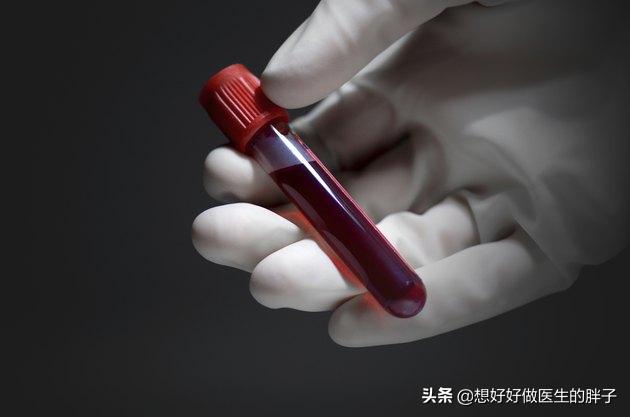
What causes hypokalemia?
Many of you will say whether it is due to dietary problems that the blood potassium is lowered? Here we want to emphasize that whileThe main source of potassium is still our diet, but dietary factors are rarely the reason why people develop hypokalemia(anorexia, chronic poor diet is possible), a common cause of hypokalemia in people isChronic vomiting, diarrhea, excessive sweating, blood lossAs well as some internal diseases such askidney disease, long-term use of certain medications can also lead to potassium loss, such astachycardiatogether with someantihypertensive drug。

If your blood potassiumLess than 3.5 mmol/L, then we can help raise our blood potassium by adding appropriate potassium-containing foods or potassium chloride oral supplements, but if your blood potassium is too low and has beenLess than 3.0 mmol/LIntravenous supplementation is then required, or very serious problems can occur, such as abnormal heart rate, heart block or cardiac arrest.
What are some potassium-rich foods?
groundAccording to the Chinese Dietary Guidelines for Residents, our daily potassium intake should be no less than 2,000 milligrams.In our daily diet, in fact, many foods are rich in potassium, to complete this daily needs is not difficult, so which foods are rich in potassium? Mr. briefly introduced to you.
●legumesIt is an excellent source of potassium. Among soy products, which are not only rich in potassium, but also relatively high in dietary fiber, about 130 grams of white beans and can provide421 mg of potassium, lentils are also a good source of potassium.
●Potatoes and Groundnuts. Six taels of potatoes will provide1600 mgof potassium, half a pound of groundnuts provides1100 mgThe potassium, in addition to these two ingredients are just as rich in dietary fiber, and a proper increase in the intake of potatoes is also very important for us to maintain the health of the intestines.

●Spinach, beets. One hundred grams of beets still have aboutThree hundred milligrams of potassium.Spinach is also rich in potassium, and rich in vitamin A, vitamin K, calcium content is also relatively high, but it is recommended that you must hit a blanch when cooking spinach, because in the spinach in the oxalic acid content is relatively high.
●Tachibanako, orange juice.. A cup of about half a pound of orange juice will provide nearly500 milligrams of potassium.Citrus fruits are also rich in vitamin C, which also plays an important role in our body, but here Dr. Xie advises you to try not to consume a lot of orange juice if you have high uric acid, as there is a possibility that it may further raise your uric acid, especially in the long term.

●bananasRich in potassium, as I'm sure you know by now, a ripe banana contains nearly 450 milligrams of potassium, but if you suffer from diabetes, it's not a good idea to overindulge in bananas because of their high sugar content.
Have you noticed that, in fact, in our daily life, if you eat normally, you basically will not be low in potassium!
summarize
Our human body is very complex, the lack of any element may have an impact on our body, if you have the above symptoms, it is recommended that you still need to go to the hospital to seek medical help, we test a blood potassium, it is very simple to determine whether we have hypokalemia, if the problem is not too big, we can completely adjust through the diet to improve the level of blood potassium!
with respect tohypokalemiaThe problem, today we talk to you here, if you have other doubts you can leave a message below, we all discuss together.
I'm Xie Xinhui, who insists on using simple language to explain complex disease knowledge, it's not easy to code, if you agree with me, please help to point a concern or click a like it, if you or your family and friends also have blood potassium abnormalities in this area of trouble, please forward this article to the need of their it, thank you!

Hypokalemia is a condition that many people experience in their lives, except that the vast majority of people don't care about it, and may not expect it to be hypokalemia, because in the case of mild hypokalemia, the patient will have virtually no symptoms, and even in the case of more severe hypokalemia, if the patient has already tolerated it, then there may be no signs of it at all.So what are the symptoms of low potassium, and what kind of harm will it bring to the patient? Here is what Dr. Choi will tell you.
First of all, what are the symptoms when there is a potassium deficiency
1. The earliest and most common symptom that occurs when a patient is deficient in potassium ismuscle weaknessThis is because potassium in the body is a raw material necessary to maintain normal nerve and muscle activity in the body. In layman's terms.Potassium is the equivalent of a stimulant drug, and without it, you have no spirit or energy.Of course too much is not good, that would be overexcitation and also changes in muscle strength and tone. In general, the more severe the potassium deficiency, the worse the symptoms will be, and in the early stages they may be onlySymptoms of numbness and weakness of movement in the limbsIf the disease is severe, it will progress to the inability to dominate physical activities. This kind of limb weakness has a point of identification, that is, the distal part of the limb is more serious than the proximal part, and develops from far to near, and generally the lower limb is earlier and heavier than the upper limb, such asUnable to walk, stand, or dominate, or can't stand up after squatting or sitting for a long time, lying down but can't turn over. Of course, low potassium is also the manifestation of convulsions, I once ate something bad diarrhea, there is a low potassium convulsions manifestation. In addition to these muscle and activity effects, patients based on potassium deficiency can developApathy, sleeplessness, depression, etc.

2, but a more serious potassium deficiency can also affect the heart, so that the heart'sReduced stress capacity、Regular changes in heartbeatOr there may be a disturbance in the conduction of signals from the heart. From mild to severe it can appearRapid heartbeat (but normal rhythm), and a disorganized heartbeat (near-death heartbeat) are all possible. And potassium deficiency can also cause the patient to develop low blood pressure and even cause the patient to develop heart failure. However, the heart changes caused by low potassium more often than not are likely to show up on an electrocardiogram to aid in the diagnosis and treatment of the condition.
3. Some patients are likely to haveChronic low potassiumand not a temporary acute potassium deficiency, long-term potassium deficiency will affect the patient's kidney function, so that the kidney's are damaged, which will make the kidney's originalImpairment of excretion, concentration, reabsorption and secretory effectsThis can lead to a disruption of the body's balance and a variety of complications that can be difficult to manage. Moreover, long-term potassium deficiencyIt's fatal for the child and can retard growth。
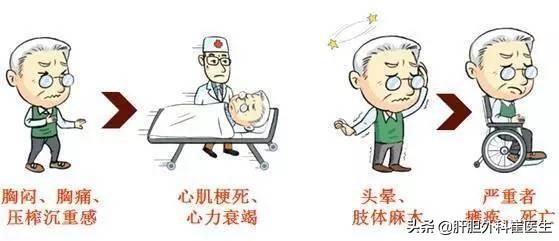
4, I have already said, the body's potassium is to maintain the body's organs and organs activities "stimulant", for the gastrointestinal tract peristalsis is no exception, although low potassium may be caused by acute diarrhea, but low potassium is the will beReduces peristalsis in the gastrointestinal tractThe. In that case, mild hypokalemia may create a patient with aPoor appetite, lack of appetite and bloatingThe manifestations of this can also manifest themselves in some people asNausea, vomiting or constipation;And if it's severe, it's possible to cause the patient to develop an intestinal obstruction, which isintestinal immobilityup and get clogged with food debris, which is a very dangerous thing to do.
What are some of the reasons why low potassium occurs and how do you just determine it?
- When it comes to which diseases can lead to the occurrence of low potassium, it can really go on and on, because there are so many reasons why potassium deficiency can occur, and the first thing I'll say is thatprimary aldosteronismIt's a place that is based on theChronic severe hypokalemia, hypertensionThe main manifestation of the comprehensive disease, this kind of patient is often the application of several kinds of antihypertensive drugs can not control the blood pressure, and usually will appear the performance of the sudden lack of energy, if there are the above situation, it is recommended to consult a doctor to check whether there is a primary aldosteronism, this kind of disease is mostlyCaused by partial adrenal hyperplasia, adrenal tumors or even adrenal cancerIt is possible to check the relevant hormone levels and the morphology of the adrenal glands for diagnosis in the clinic, and it is important to detect and treat the disease early.
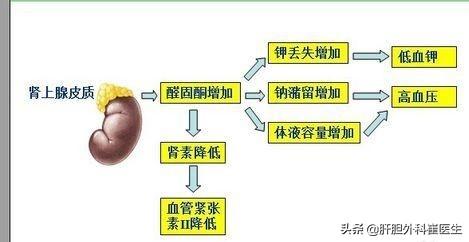
- there's alsoThyroid disease can also cause low potassiumThe occurrence of which is mainly a variety ofHyperthyroidism, thyroiditisThis leads to a massive elevation of thyroid hormone secretion in the body, which in turn leads to organism-relatedHyperfunctioning of metabolismThe manifestation of this is also known as thyrotoxicosis. Such hormonal changes have the potential to cause a massive transfer of intracellular potassium ions to the outside of the cell and thus out of the body, in which case it can causePotassium deficiency in the bodytriggerMuscle weakness, periodic paralysisSuch manifestations often occur in young patients with thyroid disease, especially in young males.
- What you may not be familiar with is thediabetesIt's also going to beCauses low potassiumThis includes when the body's blood glucose rises significantly above the body's blood glucose regulation level, a large amount of sugar in the body will be discharged by the kidneys, this process will be taken away at the same time the body's potassium ions, is the body's potassium ions to reduce, according to statisticsIt reduces potassium in the body by 20%.The blood volume in the body also rises due to the elevated blood sugar, which acts like a sponge in the blood vessels, and this can furtherDilutes potassium ions in the blood. In addition, diabetic patients are often treated with either insulin-promoting secretion or exogenous insulin, which is applied to lower potassium ions, so the combined effect can exacerbate the reduction in potassium ions.
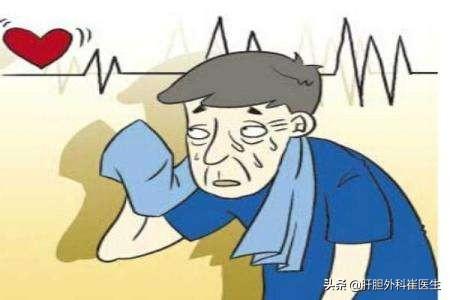
- In life, some people who suffer fromPatients with heart disease, liver disease or kidney disease, especially the elderly, who may normally eat some long-termDiuretic medication, and diuretics are known to slowly take away potassium ions from the body over time.
- The cause of the disease I'm going to talk about below is something you should be wary of, especially those whoAlcoholics, because alcoholism is also known to cause hypokalemia, and here's why, so let me tell you, when you're drunk, you're likely to vomit, and you may vomit more than once.Causes loss of potassium ions; in addition, alcoholism often results in stomach upset, so there is a lack of desire to eat, whichReduced potassium intake; and heavy alcohol use also interferes with the absorption of potassium ions, all of which contribute to the occurrence of low potassium, which is why some people who experienceWeakness and lack of energy in walkingThe situation.

How to treat low potassium if you find it
1、First of all, how to appear the symptoms of low potassium, and then found the existence of low potassium, then the primary treatment in addition to thePotassium supplementationIn addition to that, it is more important toFinding the cause of low potassiumBecause treating the symptoms does not achieve the best results, it can also cause harm to the patient. So check the cause ifThe patient's blood pressure was also fantastically high and couldn't be lowered with many medicationsThen the heightSuspected primary aldosteronismThe disease is not well controlled and requires surgical intervention, which is risky because of the possibility of sudden high and low blood pressure.Highly susceptible to cerebral hemorrhage or cerebral infarction, a lot of preparation is required before surgery and a visit to a major hospital is recommended.
2. And if it is becauseHypokalemia due to poorly controlled diabetes mellitusThe first thing you need to do is to actively control your blood glucose, under the guidance of an endocrinologist, and also pay attention to your daily diet.Don't eat a diabetic diet by eating a lot of food or everything, and it is important to test for changes in blood glucose during glycemic control and also for low potassium.

3. andLow potassium due to hyperthyroidism and thyroiditis is also a matter of controlling the primary diseaseIn daily life, many people suffer from low potassium due to sudden diarrhea or vomiting. In daily life, many people are people because of sudden diarrhea, vomiting caused by low potassium, this time to timely potassium supplementation, if it is a mild low potassium, it is possible to purely dietary potassium supplementation, that is, theEat more foods that contain potassium ions, such as bananasHowever, the decision should be made according to the patient's condition, because some patients with very mild low potassium may show severe manifestations, and then medication or infusion of potassium supplementation is needed.Potassium supplementation should be done on medical advice, not blindlyAnd I emphasize again, do not be too slow to privately adjust the speed of potassium supplementation, adjust the speed is likely to die, really not scare you.

Lastly, never underestimate low potassium as a condition that is serious is a big risk. You need to go to the hospital early for checkups when you have muscle weakness and lack of energy, so don't delay.
If 10% potassium chloride 5-10 ml, directly injected intravenously, no matter adults, children, immediately can cause death, if autopsy, the heart of the deceased stopped in diastole!
Potassium is mysterious, it is the devil, just a little bit, can make people go to hell without moving, quickly and sharply, and without leaving any trace.
What are the drugs used in lethal injections? Typically, three drugs are used in lethal injections: sodium thiopental to cause loss of consciousness, bavlon to cause muscle paralysis and respiratory failure, and potassium chloride to stop the heart. These three drugs usually first render the person being injected unconscious and then stop his or her breathing and heartbeat.
I remember when we were in school, the instructor repeatedly emphasized that when adding potassium into the vein, it must be done slowly or it will cause the patient to go into cardiac arrest, and this is what the lead instructor has been emphasizing since arriving in the clinic.
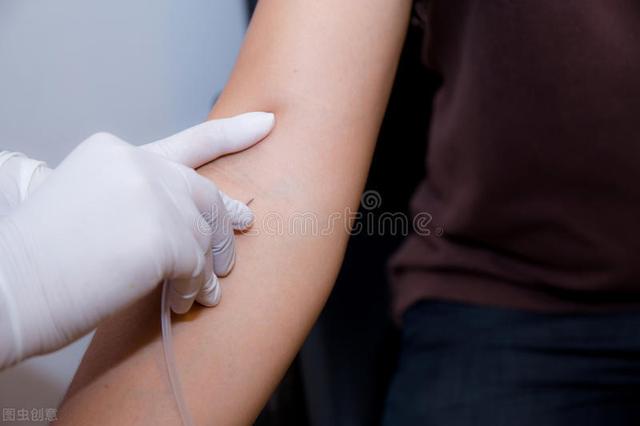
In clinical practice, special emphasis is placed on the "three checks and seven pairs", with the three checks referring to: pre-operation check, operation check and post-operation check, and the seven pairs referring to: bed number, name, name of drug, dose, time, concentration and usage. This is of great significance in ensuring the safe use of drugs like potassium chloride.
Since Potassium Chloride is like a time bomb in the medicine cabinet, which means that Potassium is very important to the human body, and the heart stops beating immediately when the potassium in the body is high, @OctoberHarvest and we will see what symptoms will occur if the potassium in the body is low.
The normal concentration of potassium in the blood is 3.5 to 5.5 mmol/L. We generally consider a level below 3.5 mmol/L to be hypokalemia. The average adult body contains about 150 grams of potassium, which is mainly stored in the body's cells.
I. Symptoms of potassium deficiency
The most prominent manifestation of hypokalemia is limb weakness. Symptoms usually start from the lower limbs and are most obvious in the lower limbs, manifesting as unsteadiness, weakness or difficulty in climbing stairs.

Later, with the aggravation of hypokalemia, this weakness rises towards the trunk and upper limbs until it affects the respiratory muscles, and in severe cases even respiratory failure and cardiovascular dysfunction, such as palpitations, chest tightness, and finally paralysis of the respiratory muscles, respiratory distress as well as severe cardiac arrhythmias, can occur. When these symptoms occur, they are often accompanied by nausea、Signs of intestinal paralysis such as anorexia, vomiting and bloating.
People knowledge since low or high potassium in the body can have such serious consequences, even life-threatening, you must be wondering what important role potassium actually plays in the body? Come back and share with us what you've gained @October!
II. Role of potassium
The human body is like a huge and precise chemical factory, each cell of the human body is like a smallest workshop in the chemical factory, each cell is an independent individual, but connected to each other, each cell is exchanging energy every moment, in order to maintain the normal function of the cell, it is necessary to maintain the stability of the osmotic pressure inside and outside of the cell, the constancy of the ions, the constancy of the acidity and alkalinity and so on.
1, potassium ions are the main cations within the cell, the normal metabolism of each cell must rely on potassium ions, because there must be a high concentration of potassium ions in order to allow the normal functioning of intracellular enzymes, enzymes are equivalent to catalysts in the chemical, which plays a very special role, there are a wide variety of enzymes within the body in the fulfillment of a specific mission.
2. The acidity and alkalinity of cells in the body must be maintained at a specific range in order for the cells to function properly, and when potassium is low, metabolic alkalosis occurs.
3、Maintain the state of neuromuscular excitability, our heart beats rhythmically, and all kinds of activities of our body depend on the excitability of nerves and muscles. If the blood potassium is too high, it will make the neuromuscular over-excitability, for example, there will be disturbances in the heart rhythm, numbness in the limbs and around the lips, extreme tiredness, and paleness of the limbs, and so on, and if the blood potassium is too low, it will result in the neuromuscular paralyzation.
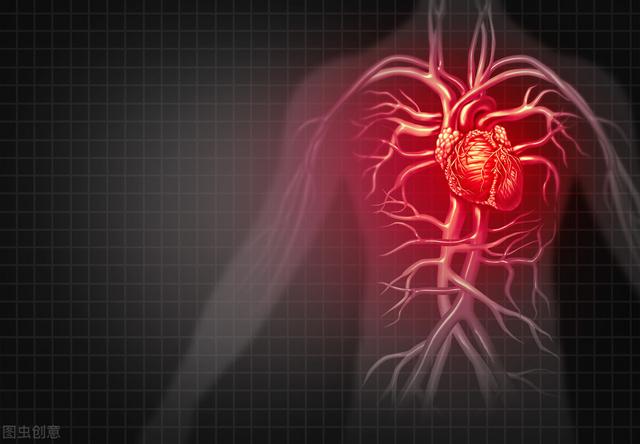
4, cells synthesize 1 gram of glycogen about 0.33 MMOL potassium into the cell, every synthesis of 1 gram of protein about 0.45 MMOL potassium into the cell, on the contrary, in the process of decomposition of sugar and protein, the cell also releases the corresponding potassium, and sugar and protein is the main source of energy for human body energy and maintenance of normal life activities.
5. Potassium is also an important substance for maintaining acid-base balance, normal blood volume, and normal kidney function in the body.
Since potassium is so important to the body, the driest and most dry chapter of this article is here, @ October's Harvest to share with you, what makes you prone to have high or low potassium in your body?
III. What are the factors that cause abnormalities in blood potassium?
(i) Common causes of low potassium levels
1. Decreased intake of potassium.
The most common is a group of unscientific and blind weight loss crowd, a lot of weight loss packages to diet-based, and even more a week only eat some fruit, do not eat staple food, in fact, is alive and starving thin, this method, very easy to appear in the case of low blood potassium occurs.

Others are diseases of the digestive tract, such as patients with intestinal obstruction, patients fasting from gastrointestinal surgeries, and patients in prolonged coma, etc., which can cause hypokalemia in the long term because of the inability to eat and the lack of timely potassium supplementation.
2. Increased potassium excretion.
The most common are digestive disorders, such as diarrhea and vomiting, and failure to replenish potassium in a timely manner, or working in the heat and sweating profusely, allowing potassium to be lost through prolonged excretion through the skin.
Hypokalemia can also occur in some patients with chronic kidney disease who have been taking diuretics such as furosemide and hydrochlorothiazide for long periods of time without giving potassium supplementation.
(ii) Common causes of high blood potassium levels
1. In the oliguric phase of acute renal failure, potassium-preserving diuretics should be used to reduce the amount of potassium excreted in the urine.
2. If the oral or intravenous input of potassium chloride is too much, too fast, too concentrated, the use of potassium-containing drugs and the input of large quantities of stored blood, etc., usually occur in the course of treatment in hospitals, so that for hospitalized patients, blood tests and examinations are often required to see whether the blood potassium is within the normal range.
3. Severe crush injuries, extensive burns, hemolysis and drug intoxication lead to severe damage to a large number of cells, causing potassium ions to be transferred to the outside of the cell through the cell membrane. Metabolic or respiratory acidosis, vigorous catabolism and insulin deficiency can also cause a large amount of intracellular potassium to move out of the cell.
Most of the above factors that cause abnormalities in blood potassium are of medical origin, so how do we know if we have low blood potassium in our normal life, in fact, it is very simple, go to the hospital for a blood test, check the blood potassium will know, in general, the blood potassium is mildly reduced, it can be supplemented by food, usually eat more potassium-rich fruits and foods can be.

The most rich in potassium when the banana, spinach, tomatoes, purple cabbage potassium content is also very high, in addition, we often eat oranges, is a kind of potassium-rich fruits, from the food or fruit to supplement potassium, very safe, but also very convenient, is worth promoting.
In conclusion: the human body can't do without either element, but a potassium deficiency can be very damaging.Potassium deficiency is serious and life-threatening. It is especially not advocated to achieve thinness through long-term dieting in order to be thin as a lightning bolt. Treat your body well, pay attention to the nutritional balance, health is the first in any case, with health to have beauty, you say, right?

Thanks for reading and I hope this article was helpful!
Hi everyone, I'm Comic Book Guy and I'm happy to answer your questions!
What are the symptoms of potassium deficiency?
Potassium is one of the important elements of the human body, together with sodium constitutes the sodium-potassium pump of cellular transport, which helps the transfer of substances inside and outside the cell, potassium is closely related to the normal physiological function of the cell, once the symptoms of low potassium, it will affect many aspects of the body, today, follow the comic talk to talk about if the body is deficient in potassium, what symptoms are stored in the body?
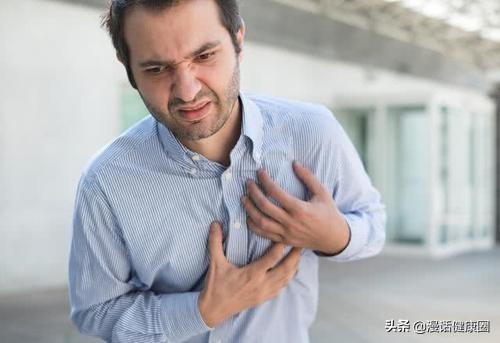
1. One of the roles of potassium is to have a relationship with cellular metabolism, participating in sugar, protein and energy metabolism. Potassium is always present throughout biochemical synthesis and catabolism. Therefore, when potassium is deficient, a symptom that can easily occur is that energy metabolism is impaired, with aGeneralized weakness and lack of energySymptoms such as.
2. The second role of potassium is to participate in the maintenance of intracellular osmotic pressure and acid-base balance, this is very important, only inside and outside the cell osmotic pressure balance, the organelle will not be extruded, in order to play a more normal role; at the same time, when the lack of potassium, it is very easy to cause bodyacid-base imbalanceIn general, blood potassium is excreted from the cells when acidosis occurs, resulting in an increase in the body's blood potassium, and a decrease when alkalosis occurs.
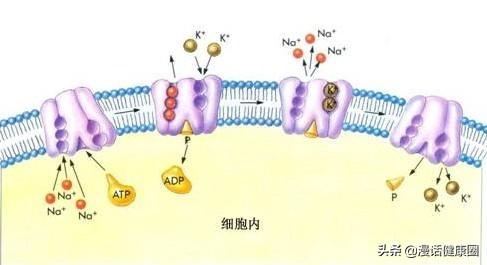
3. The third role of potassium is to maintain conduction in cardiomyocytes. We know that the beating of the heart depends on the regular beating of the cardiomyocytes to be able to pump blood normally, and the conduction of this signal depends on the transfer of potassium ions inside and outside of the cells to appear regular conduction, so the lack of potassium, may causenormal conduction of electrical signals in cardiac myocytes.This results in dysfunction of the cardiomyocytes, potentially resulting in aarrhythmiaand other typical symptoms.
4. Potassium also has a role in maintaining signaling in neuromuscular cells and maintaining neuromuscular excitability. If a potassium deficiency occurs, neuromuscular excitability will be greatly reduced, and there is a risk ofSymptoms such as weakness in the limbs and neuromuscular relaxation.
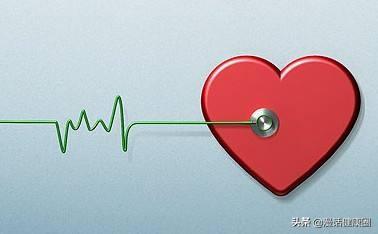
To summarize, the symptoms that occur after a potassium deficiency in the body include:Tachycardia with irregular heartbeat, muscle weakness, numbness, irritability, nausea, vomiting, diarrhea, low blood pressure, confusion, and apathy。
So how can you scientifically and effectively replenish potassium when potassium deficiency is so harmful?
Potassium is metabolized in the body according to the following pattern:Eat more to eliminate, eat less to eliminate, don't eat also eliminateFor this reason, potassium needs to be taken in from outside. And the most normal way is to take in from our daily life and supplement potassium.
The average normal person has a blood potassium concentration ofaround 3.5 to 5.5 mmol/L.If blood potassium levels fluctuate in this neighborhood, it is recommended to consume someSeafood, kelp, bananas and other potassium-rich ingredients;Note that we are talking about ingredients here, not medicines, and this is for slightly lower blood potassium, which is something that can be supplemented accordingly through diet;

However, if when the blood potassium concentration is too low, one must be alert to the occurrence of hypokalemia. Hypokalemia generally appears, and is likely to affect the respiratory, nervous, and cardiac circulatory system failure, and requires timely potassium supplementation treatment to maintain the acid-base balance in the body. Therefore, such scientific potassium supplementation is the most effective.
Comic Book Review
Potassium is one of the most important elements of the human body, once the lack of, are likely to have hypokalemia, when the body has what muscle pain and weakness, it is necessary to go to the hospital for examination, early diagnosis and early treatment!

I. Potassium deficiency can present several symptoms:
First, it leads to increased blood pressure.Potassium relaxes the blood vessels of the body, and if there is a deficiency of potassium, then the blood vessels of our body are more prone to tension, which in turn manifests itself in the form of elevated blood pressure;
Second, fatigue and weakness.Potassium is involved in the normal activity of the body's nerves and muscles. If potassium is deficient, a person will show a state of exhaustion and lack of energy, and will be fatigued even if he or she gets enough sleep and does not engage in physical activities.

Third, frequent cramps.Many people suffer from leg and foot cramps all the time, beware that they are caused by potassium deficiency. Because muscle cramps are mainly caused by smooth muscle contraction, potassium relaxes the smooth muscles.
Fourth, recurrent constipation.Many people think that constipation is the cause of fire or diet, in fact, the lack of potassium can also lead to human constipation, because the human body defecation process also has a lot of muscle in the control, and potassium is involved in it, affecting the human body's digestion and defecation.
II. Causes of potassium deficiency

There are 2 main causes of potassium deficiency in the human body:
1. Unbalanced diet. There are many people who are more picky in their daily diet, some do not like to eat vegetables, some do not eat fruits, resulting in insufficient input of potassium.
2. Abnormalities in the digestive system. If the daily diet is balanced, and then there is a lack of potassium, then it is possible that the intake of potassium is not absorbed by the body, that is to say, there are problems with the digestive system.

How should I supplement my daily life with potassium?
First, it is important to visit the hospital to check for abnormal digestive system function so that the potassium supplementation can actually be absorbed by the body at a later stage.
Secondly, pay attention to nutritional balance in daily life, and supplement potassium-rich fresh fruits and vegetables in moderation, such as bananas, which contain 0.25g of potassium per 100g of bananas. Chicken leg mushrooms, portobello mushrooms and other mushrooms also contain high levels of potassium, with 4 grams of potassium per 100 grams of chicken leg mushrooms and 3 grams of potassium per 100 grams of portobello mushrooms; in addition, coconuts, oranges, potatoes, soybeans and fava beans are also rich in potassium.

Finally.A word of caution., Supplementation of potassium should be noted that patients with renal insufficiency have lower ability to excrete potassium, and blind potassium supplementation may lead to hyperkalemia and risk of apnea and cardiac arrest. Therefore, potassium supplementation for such people should be carried out under the guidance of doctors.
Good life from the beginning of health, the beginning of health, health science professional media!
I'm Dr. Liu, a medical scientist, spreading medical knowledge and making everyone their own doctor!
Potassium deficiency is a very common clinical situation, many people will come to the hospital because of "weakness, loss of appetite" and other symptoms, the doctor may suggest that the patient, "you go to check the electrolytes, to see if it is electrolyte disorders," then the lack of potassium in addition to cause What other symptoms can potassium deficiency cause besides fatigue and loss of appetite?

There are actually no more than two reasons for hypokalemia:Inadequate potassium intake和Excessive potassium excretion, the normal clinical concentration of potassium is 3.5 to 5.5 mmol/L, and theBelow 3.5 mmol/L is called hypokalemia。
The clinical manifestations that hypokalemia makes patients present with depend largely on the amount ofThe rate and extent of hypokalemia,Potassium concentrationetc. Below we look at what symptoms of hypokalemia can occur in terms of how the body's various systems behave.
- Skeletal muscle performance
Nice, what we said at the beginning of the articleFatigue, weaknessIt is the low potassium that is the most likely symptom, and this is usually seen when the serum potassium is <3.0 mmol/L. And when serum potassium drops further below 2.5 mmol/L, the body will experience more serious symptoms - theGeneralized muscle weakness, limb paralysis, tendon reflexes are weakened or disappeared, even diaphragm, respiratory muscle paralysis, difficulty in breathing, swallowing, and in severe cases, asphyxia。

- Digestive manifestations
Nausea, vomiting, anorexia, bloating, constipation, decreased or absent bowel movements, and intestinal paralysis.
- Central nervous system manifestations
Depression, unresponsiveness, disorientation, drowsiness or coma.
- Circulatory system performance
Increased early myocardial stress.tachycardiaIn severe cases, there may be atrial and ventricular pre-systole. The electrocardiogram may show wide and low T waves, prolonged QT interval, and U waves; in severe cases, the T waves are inverted, the ST segments are downshifted, and there areMultiple source preterm contractions or ventricular tachycardia; more severe cases can be caused bySudden death from ventricular flutter, ventricular fibrillation, cardiac arrest or shock。

- Urinary manifestations
Chronic or severe potassium loss can lead to degeneration and necrosis of renal tubular epithelial cells, and decreased urinary concentrating function appears to beThirst, excessive drinking和nocturiaAnd then it happens.potassium-losing nephropathyoccurrenceproteinuria和tubular urineetc.
- Acid-base balance disorders
In potassium deficiency, intracellular potassium is lacking, extracellular Na+ and H+ enter the cell, and the exchange of K+ with Na+ in the distal tubules of the kidney decreases while the exchange of H+ with Na+ increases, thus resulting inMetabolic alkalosis, intracellular acidosis and paradoxical aciduria。
Summary: We can see that hypokalemia is not only common symptoms such as "weakness, loss of appetite", but also may appear in all major systems, and the principle of clinical potassium supplementation also has strict requirements, so in order to address hypokalemia, it is necessary to find the cause of the disease, and standardized treatment under the correct guidance of the doctor, and do not blindly use drugs on their own. Do not blindly use medication on your own.
Hi everyone, I am a nephrologist and both hyperkalemia and hypokalemia are encountered more often in our nephrology department. What are the symptoms of potassium deficiency? Depending on the degree of potassium deficiency, the manifestation of potassium deficiency in various systems of the body are different. How to know whether you have potassium deficiency? If you have a potassium deficiency, how do you make up for it? I will talk about my opinion below.

First, let's look at the link between blood potassium levels and the kidneys
I remember my teacher mentioning in school that potassium in our bodies isEat more to eliminate, eat less to eliminate, don't eat also to eliminateOur kidneys are important organs for regulating potassium metabolism. Our kidneys are important organs in regulating potassium metabolism, 80% is excreted by it , about 10% by feces and sweat. In our body, potassium is freely filtered through the glomerulus and then reabsorbed in large quantities in the proximal tubules and the thick segment of the ascending branch of the medullary loop. Potassium excretion depends almost entirely on the secretory action of the distal tubules and collecting ducts.10-20% of the potassium filtered from the glomerulus is excreted in the urine, most of which is reabsorbed in the proximal tubule, like most of the potassium in our urine is excreted by the distal tubule.
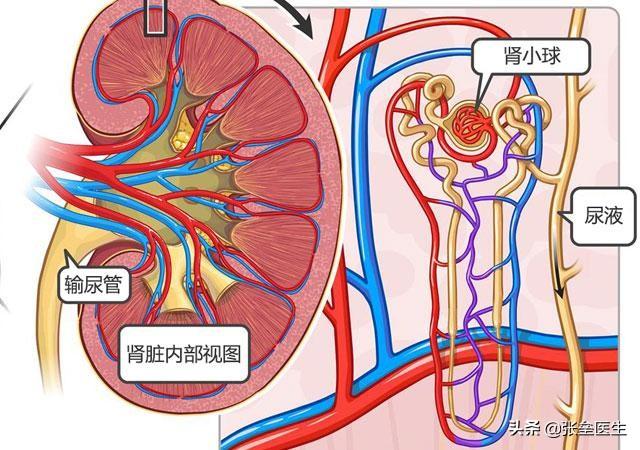
What causes potassium deficiency?
● e.g. reduced potassium intake:Commonly, patients with gastrointestinal obstruction, coma, prolonged absence of food after surgery, or inability to eat, can suffer from potassium deficiency and hypokalemia if they are given intravenous nutrition without potassium supplementation or with insufficient potassium supplementation.
● If potassium is excreted in excess:Patients with severe diarrhea, vomiting, etc. accompanied by loss of large amounts of digestive juices, patients taking diuretics for a long period of time, patients with specific renal diseases (distal tubular acidosis, polyuric phase of acute tubular necrosis, etc.), aldosteronism,It can be caused by heavy sweating during heavy labor in hot environments, etc.
● e.g. due to the transfer of extracellular potassium to intracellular:Like a familial disease."Hypokalemic periodic paralysis."This can lead to a shift of extracellular potassium to intracellular and thus hypokalemia during an attack;Alkalosis in the human body(Intracellular hydrogen ions move to the outside of the cell to act as a surrogate, while extracellular potassium ions enter the cell);Or an overdose of insulin.(Insulin promotes glycogen synthesis, which requires potassium, so plasma potassium enters the cell with glucose to synthesize glycogen.)
● Other reasons:presence ofbarium poisoning(In barium intoxication, the NA-K-ATPase on the cell membrane continues to be active, potassium in the extracellular fluid continues to flow into the cell, but the pore through which potassium flows out of the cell is specifically blocked, and hypokalemia occurs in infants.); crudecotton oil poisoning(The main consideration is related to the presence of cotton-phenol in crude raw cotton oil, when the person tends to be extremely weak or experience delayed paralysis of the muscles of the limbs.)
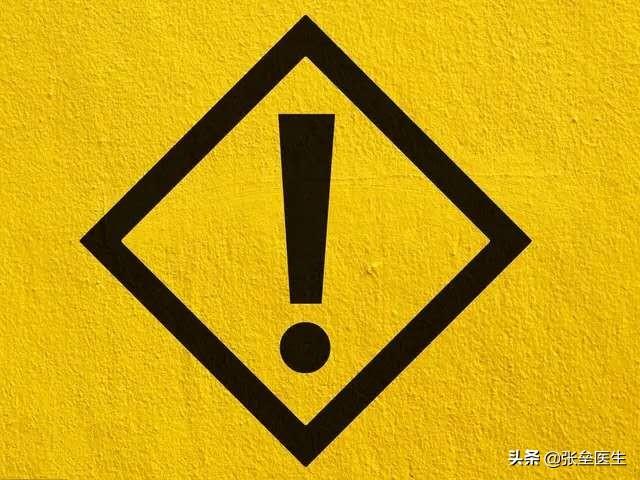
What are the symptoms of potassium deficiency?
Empirically, the severity of hypokalemia symptoms depends on the degree of intra- and extracellular potassium deficiency and the rate at which it occurs, with symptoms like acute hypokalemia being more severe than chronic hypokalemia with the same level of potassium deficiency.
:: In the neuromuscular system.Potassium deficiency in the human body is mainly characterized by muscle weakness and episodes of flaccid paralysis. For example, numbness of the limbs before the attack, followed by weakness, some patients start to be unable to stand up, walk, sit or squat and cannot stand up. In mild cases, the patient can barely stand up by holding the support with his/her hands, and cannot turn over by himself/herself.Painful spasms or twitching of the hands and feet may also occur.
:: In the cardiovascular system.Low potassium decreases myocardial stress and results in a variety of arrhythmias and conduction blocks. In mild cases, there is sinus tachycardia, atrial or ventricular pre-systole, and atrioventricular block.In severe cases, paroxysmal atrial or ventricular tachycardia or even outright ventricular fibrillation can occur leading to death.
:: In the urinary system.Chronic low potassium can cause potassium deficiency nephropathy by damage to the renal tubules, where tubular concentration, ammonia synthesis, hydrogen secretion, and chloride reabsorption can be diminished or enhanced. Sodium excretion function or sodium reabsorption function may also be diminished.The result is metabolic hypokalemia and hypochloremic alkalosis.
:: In other respects.Hypokalemia can have impaired glucose tolerance and delayed growth in children with chronic potassium deficiency. It can also slow down the peristalsis of our intestines, and in mild cases only loss of appetite, bloating, nausea and constipation.And in severe cases, it can cause complications such as paralytic bowel obstruction.
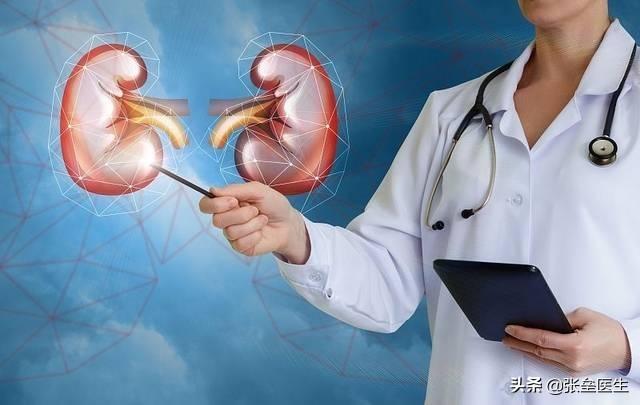
What should I do about potassium deficiency?
Clinically, we routinely give fluids or oral medications, food potassium supplementation is actually only symptomatic treatment, we also need to look at the key to the reasons behind theThen find him and finish him off. That's the real way to get to the bottom of this... This response does not constitute a recommendation for medical treatment, nor does it constitute medical guidance.For health science purposes only.. Summarized from personal experience, not added to columns, gratuitous and free for all to read. I hope this has been helpful. Don't be mean if you learned.Give it a like, retweet it to help more people, and thanks for the support.

This question and answer are from the site users, does not represent the position of the site, such as infringement, please contact the administrator to delete.